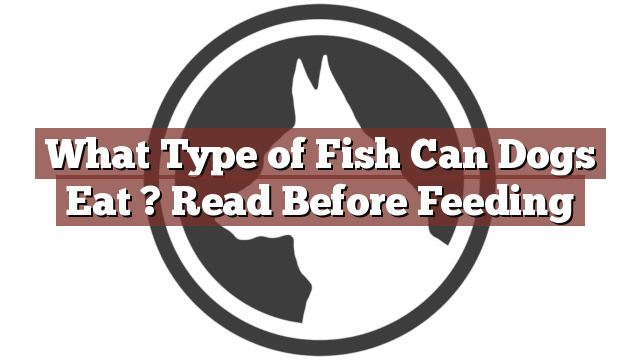Understanding Your Dog’s Dietary Needs
As a responsible pet owner, it is crucial to understand your dog’s dietary needs. A balanced diet plays a vital role in ensuring their overall health and well-being. While dogs are primarily carnivorous animals, they can also benefit from certain fruits, vegetables, and even fish. However, it is essential to be cautious about what types of fish are safe for your furry friend to consume.
What Type of Fish Can Dogs Eat? Read Before Feeding
Now, the question arises: can dogs eat fish? The answer is a resounding yes. Fish can be a healthy addition to your dog’s diet, offering various nutritional benefits. Fish is an excellent source of lean protein, omega-3 fatty acids, and essential vitamins and minerals. These nutrients contribute to your dog’s overall growth, development, and maintenance of a healthy coat, skin, and immune system. However, not all fish are safe for dogs to consume.
Fish that are generally safe for dogs to eat include salmon, trout, and whitefish. These fish are low in mercury and can be served cooked or canned. It is important to note that the fish should be cooked thoroughly to kill any potential bacteria or parasites. Additionally, bones should always be removed to prevent choking hazards or intestinal blockages. It is advisable to consult with your veterinarian before introducing fish into your dog’s diet, especially if your dog has any existing health conditions or allergies.
Pros and Cons of Feeding Fish to Dogs
Feeding fish to your dog offers several benefits. As mentioned earlier, fish is a rich source of lean protein, which aids in muscle development and repair. The omega-3 fatty acids found in fish can help reduce inflammation, promote a healthy heart, and enhance cognitive function. Moreover, fish is often more easily digestible compared to other meats, making it suitable for dogs with sensitive stomachs or food allergies.
However, there are a few considerations to keep in mind. Fish can be high in fat, so it is important to moderate the amount given to your dog to avoid weight gain and other potential health issues. Additionally, some types of fish, such as raw or uncooked fish, can contain harmful bacteria or parasites that may cause foodborne illnesses in dogs. Therefore, it is crucial to ensure the fish is properly cooked and prepared before serving it to your canine companion.
Conclusion: Make Informed Choices for Your Dog’s Health
In conclusion, fish can be a beneficial addition to your dog’s diet, providing them with essential nutrients and promoting their overall health. However, it is crucial to make informed choices regarding the types of fish you feed your dog. Stick to safe options such as salmon, trout, and whitefish, ensuring they are cooked thoroughly and bones are removed. As always, consult your veterinarian before making any significant changes to your dog’s diet to ensure it aligns with their specific needs and health conditions. By being mindful of what you feed your furry friend, you can help them lead a long, healthy, and vibrant life.
Thank you for taking the time to read through our exploration of [page_title]. As every dog lover knows, our furry friends have unique dietary needs and responses, often varying from one canine to another. This is why it's paramount to approach any changes in their diet with caution and knowledge.
Before introducing any new treats or making alterations to your dog's diet based on our insights, it's crucial to consult with a veterinarian about [page_title]. Their expertise ensures that the choices you make are well-suited to your particular pet's health and well-being.
Even seemingly harmless foods can sometimes lead to allergic reactions or digestive issues, which is why monitoring your dog after introducing any new food item is essential.
The content provided here on [page_title] is crafted with care, thorough research, and a genuine love for dogs. Nevertheless, it serves as a general guideline and should not be considered a substitute for professional veterinary advice.
Always prioritize the expert insights of your veterinarian, and remember that the health and happiness of your furry companion come first.
May your journey with your pet continue to be filled with joy, love, and safe culinary adventures. Happy reading, and even happier snacking for your canine friend!

